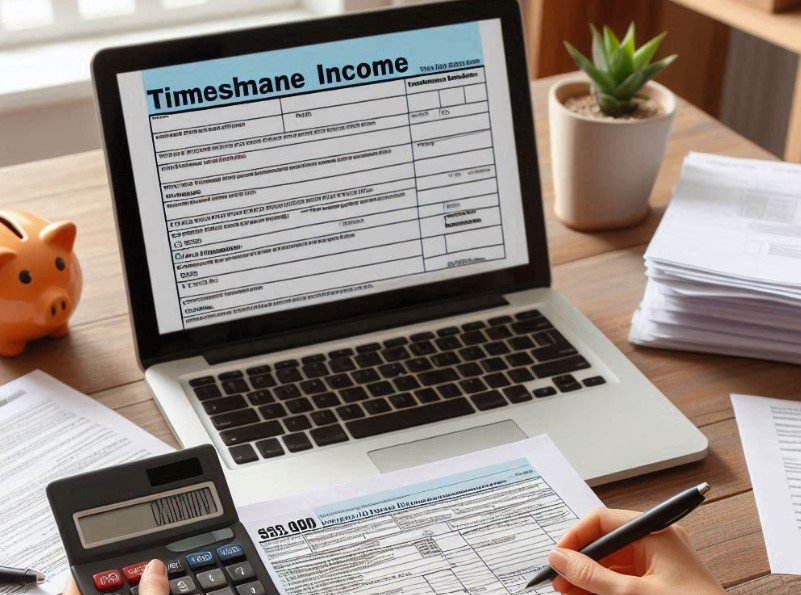Taxation can be quite a headache, particularly for properties such as timeshares. So, Where To Report Timeshare On Tax Return? is a daunting theme for many. Is it reporting on sales, rental incomes, or deductions, knowing which forms or guidelines go with what is everything when filing taxes? This guide helps demystify some issues and gets you organized.
Where To Report Timeshare On Tax Return?
Keep in mind that when declaring your timeshare on your tax return, these items will go under Schedule D for Capital Gains and Losses if you sold it and Schedule E for Supplemental Income and Loss if you rented it. Each petition may vary based on how the timeshare was used during your tax year.

What Is Form 1099-S?
Form 1099-S is an IRS form that is used to report proceeds from the sale or exchange of real property, including timeshares, to the Internal Revenue Service. It is a form that the closing agent or title company issues to a seller at the closing of a residential real estate sale, disclosing the total gross amount received in connection with the sale.
Basic events on Form 1099-S
- Gross sale proceeds
- Date of sale
- Description of property
Why the importance?
- The IRS uses this form to cross-verify that you have reported the sale of your timeshare accurately in your return.
- Even if you didn’t make money from the transaction, it should be entered to avoid penalties.
Where Do I Report The Sale Of A Timeshare?
You should report the sale of a timeshare in Schedule D where you report capital gain or loss. However, before reporting this, you will be able to calculate the adjusted cost basis on Form 8949. Some of the aspects covered in the adjusted cost basis include:
- The original purchase price.
- Additional costs associated (for example improvement, sales commission, or closing fees).
- Less depreciation is claimed if rented out.
After completing the above, transfer the full gain or loss to Schedule D. It is meant to report taxable income or deductible loss appropriately.
What Do I Need To Account For My Timeshare?
When it comes to filing taxes regarding a timeshare, you should prepare some records and documents such as:
- This enumerates the gross proceeds from the sale.
- Original purchase price and costs associated with it.
- Those who rented out their timeshare must include records of income and receipts for deductible expenses.
- Any major renovation or upgrades provided to the timeshare property.
- Usually, these are not going to be deductible, yet keeping the record will shed light on other expenses.
- Under some conditions, these are deductible for personal-use timeshares.

How To Report Your Real Estate Proceeds In The TaxAct Program?
TaxAct’s program would help make the process much easier to report the sales of the timeshare, but instead, try to say it as to do the following:
- Log in to TaxAct: Access your account; sign in to the current year’s return.
- Federal Q&A Section: The “Income” section takes you to “Investment Income.”
- Capital Gains and Losses: Fill out information regarding the sale of your timeshare.
- Form 1099-S: This contains the gross proceeds, date of sale, and sales line items.
- Adjusted Basis: This measures the original purchase price, improvements, and selling costs.
- Check for correctness: Run through calculations to validate accurate reports on taxes.
That is how you report the sale of your timeshare without worry.
How to Report Timeshare Sale on Tax Return?
Reporting the sale of a timeshare on your tax return would therefore require proper documentation as well as accurate calculations to be done. The first step would be filling out Form 8949 and then putting all the sale price timeshare details, original purchase price, and selling expenses on that form.
The next step will be venturing into the capital gain/loss calculation, which should be done by subtracting the adjusted cost basis (original purchase price with improvements or other related costs) from the selling price. If the result is positive, it is representative of a capital gain, meaning it is taxable.
On the contrary, the negative point indicates a capital loss, usually deductible under certain circumstances. After calculating, these total amounts need to be transferred onto Schedule D where the taxpayer will summarize all capital gains or losses.
Further, if you rented out your timeshare and claimed depreciation during the earlier years, you might have to include the depreciation as taxable income. But it must be noted that every step mentioned leaves no margin for error. Otherwise, it could lead to penalties and consequences from the IRS.
How Do I Report A 1099-S On My Tax Return?
Receipt of a Form 1099-S entails careful reporting; that is, one must ensure that errors are avoided in the report. Start verifying that all information on the document is correct; for instance, check the sale price and property description.
Once everything is correct, include the gross proceeds on Form 8949 alongside the calculated adjusted basis comprising the original purchase price (if there are any improvements) and selling expenses.

Once those calculations are finished, the totals will go onto Schedule D to establish whether there is any taxable gain or loss. It is important to keep all those supporting documents, such as receipts, invoices, and records, to substantiate your deductions or adjustments in the event of an IRS audit. Accurate Reporting and proper documentation make compliance and possible penalties eliminated.
Tax Aspects of Selling Your Timeshare
Selling a timeshare is entailed by different taxes that you must think about:
Capital Gains Tax
If you dispose of your timeshare at a profit, you have to pay tax on the gain; whether it is short-term or long-term will dictate whether you will pay tax under special rules.
Non-Deductible Loss
The IRS does not permit loss incurred on a personal-use timeshare to be deducted.
Rental Property Considerations
Income tax at the time of sale will recapture from gross income any depreciation allowable in prior years for a timeshare that the owner rents.
Best Tax Deductions for Timeshares
These deductions are those which may apply to your timeshare:
- Deductible if a timeshare loan is brought under the eligibility of the IRS.
- Deducted under the itemized deductions if the timeshare belongs to you.
- Advertising, maintenance, and cleaning costs for rental timeshares can be deducted.
- You may be eligible for a tax deduction if you contributed your timeshare to a qualified organization.
Can I Write Off My Timeshare As A Tax Deduction?
Under certain qualifications, some expenses related to your timeshare can be deducted. For example, if your timeshare loan is treated as a mortgage, the interest paid will likely be a deduction as part of your itemized deductions.

Property taxes paid on a timeshare may also qualify for deduction if they meet IRS requirements. You can deduct expenses directly allocable to earning rental income from utility costs, repairs, maintenance, and advertising if that timeshare is held to rent out. These deductions will thus lower the taxable income, and also share the burden of cost associated with owning or renting a timeshare.
Do You Report Timeshare On Taxes?
There are indeed cases when it is necessary to report on the tax returns of your timeshare. You should report the proceeds for sale and adjust for any capital gain or loss in the return, whenever it is sold.
When you rent out your timeshare, however, you have to report the income it generates on Schedule E, along with all allowable expenses, such as maintenance, advertising, and utilities associated with the property.
Likewise, if you meet the qualifications, deduction for mortgage interest and property taxes will be applicable on an itemized basis to reduce your taxable income. Properly recording these activities also ensures compliance with the IRS regulations and maximization of your tax benefits.
Conclusion
Owning and selling where to report timeshare on tax return. It is mandatory to report the timeshare by whether the owner sold, rented, or just kept it because the necessary thing being observed would be the tax laws and maximizing all deductions available.
He would be able to do this by following the proper guidelines following the proper forms and avoiding costly mistakes that would have made the person’s tax process long and arduous.
People Also Ask
What form do I use to report a timeshare sale?
Report sale and transfer totals on Schedule D using Form 8949.
Are timeshare maintenance fees tax-deductible?
No, Maintenance fees are not deductible for personal-use timeshares.
Can I deduct losses on a timeshare sale?
No, personal-use timeshares do not generate deductible losses; however, losses from rental properties may be deductible.
How is rental income from a timeshare reported?
Report rental income and expenses on Schedule E.
Do I need to report a timeshare sale if no profit was made?
Yes, all timeshare sales should be reported, even those that produce losses.
